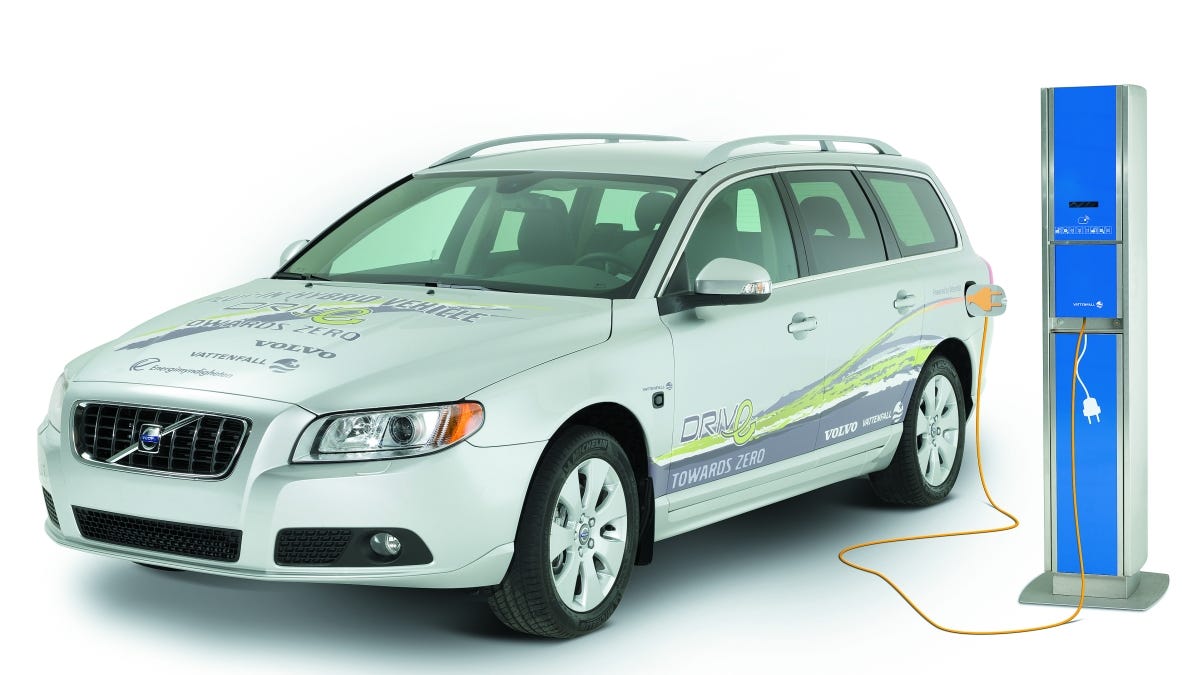Volvo promises a plug-in
Volvo announces a plug-in hybrid car will go into production as early as 2012.

Jumping in on a growing trend among automakers, Volvo announced that it will offer a plug-in hybrid car as early as 2012. Although a picture of a V70 plug-in hybrid concept was included with the announcement, Volvo hasn't confirmed which model it would use for this technology. In the past, the company has also shown a C30 concept with a plug-in hybrid power train.
But Volvo did specify the type of power train it would use for the car. The announcement describes a parallel hybrid, meaning drive power is provided by electric motors, an internal combustion engine, or both. Volvo would use a diesel engine with the capability to run on synthetic fuel in this application. The car would be designed to run under electric power for about 30 miles, making it suitable for city errands and commutes, after which the diesel engine would kick in. Volvo says the total range of the vehicle will be 745 miles.
European environmental regulations give Volvo ample incentive to develop the car. Under European emissions testing, the car would produce under 50 grams of CO2 per kilometer. At that level, some European countries will offer buyers a 5,000 euro discount on the price of the car, according to Volvo.
Volvo also seeks to allay fears that the electricity used to charge up the batteries in these cars will make an excessive impact on the grid. The company points out that a medium-size wind power station could provide the electricity required for 1,000 to 2,000 plug-in hybrids. Drivers would benefit from lower operating costs, as the amount of electricity used to drive the car over a mile costs significantly less than the diesel fuel that would run it over the same distance.

